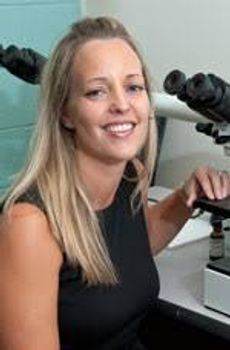E Coli Enteritis Overview
Learn About E Coli Enteritis
E coli enteritis is swelling (inflammation) of the small intestine from Escherichia coli (E coli) bacteria. It is the most common cause of travelers' diarrhea.
Traveler's diarrhea - E. coli; Food poisoning - E. coli; E. coli diarrhea; Hamburger disease
E coli is a type of bacteria that lives in the intestines of humans and animals. Most of the time, it does not cause any problems. However, certain types (or strains) of E coli can cause food poisoning. One strain (E coli O157:H7) can cause a severe case of food poisoning.
Bacteria may get into your food in different ways:
- Meat or poultry may come into contact with normal bacteria from the intestines of an animal while it is being processed.
- Water used during growing or shipping may contain animal or human waste.
- Food may be handled in an unsafe way during transport or storage.
- Unsafe food handling or preparation may occur in grocery stores, restaurants, or homes.
Food poisoning can occur after eating or drinking:
- Food prepared by a person who did not wash hands well
- Food prepared using unclean cooking utensils, cutting boards, or other tools
- Dairy products or food containing mayonnaise (such as coleslaw or potato salad) that have been out of the refrigerator too long
- Frozen or refrigerated foods that are not stored at the proper temperature or are not properly reheated
- Fish or oysters
- Raw fruits or vegetables that have not been washed well
- Raw vegetable or fruit juices and dairy products
- Undercooked meats or eggs
- Water from a well or stream, or city or town water that has not been treated
Although not common, E coli can be spread from one person to another. This may happen when someone does not wash their hands after a bowel movement and then touches other objects or someone else's hands.
Symptoms occur when E coli bacteria enter the intestine. Most of the time symptoms develop 24 to 72 hours after being infected. The most common symptom is sudden, severe diarrhea that is often bloody.
Other symptoms may include:
- Fever
- Gas
- Loss of appetite
- Stomach cramping
- Vomiting (rare)
Symptoms of a rare but severe E coli infection include:
- Bruises that happen easily
- Pale skin
- Red or bloody urine
- Reduced amount of urine
- Kidney failure
Most of the time, you will recover from the most common types of E coli infection within a couple of days. The goal of treatment is to make you feel better and avoid dehydration. Getting enough fluids and learning what to eat will help keep you or your child comfortable.
You may need to:
- Manage the diarrhea
- Control nausea and vomiting
- Get plenty of rest
You can drink oral rehydration mixtures to replace fluids and minerals lost through vomiting and diarrhea. Oral rehydration powder can be purchased from a pharmacy. Be sure to mix the powder in safe water.
You can make your own rehydration mixture by dissolving one half teaspoon (3 grams) of salt, one half teaspoon (2.5 grams) of baking soda and 4 tablespoons (50 grams) of sugar in 4¼ cups (1 liter) of water.
You may need to get fluids through a vein (IV) if you have diarrhea or vomiting and cannot drink or keep enough fluids in your body. You will need to go to your provider's office or the emergency room.
If you take diuretics ("water pills"), or ACE inhibitors for high blood pressure, contact your provider. You may need to stop taking these medicines while you have diarrhea. Never stop or change medicines without first checking with your provider. You can buy medicines at the drugstore that can help stop or slow diarrhea. Do not use these medicines without checking with your provider if you have bloody diarrhea or a fever. Do not give these medicines to children.
Aurora Internal Medicine
Hendrik Schultz is an Internal Medicine provider in Oshkosh, Wisconsin. Dr. Schultz is rated as an Experienced provider by MediFind in the treatment of E Coli Enteritis. His top areas of expertise are Pneumonia, Sepsis, Hospital-Acquired Pneumonia, Endoscopy, and Ureteroscopy.
Weill Medical College Of Cornell
Ellen Scherl is a Gastroenterologist in New York, New York. Dr. Scherl is rated as a Distinguished provider by MediFind in the treatment of E Coli Enteritis. Her top areas of expertise are Crohn's Disease, Ulcerative Colitis, Viral Gastroenteritis, Endoscopy, and Colonoscopy.
Patricia Simner practices in Winnipeg, Canada. Dr. Simner is rated as a Distinguished provider by MediFind in the treatment of E Coli Enteritis. Her top areas of expertise are E Coli Enteritis, Pseudomonas Stutzeri Infections, Sepsis, and Interstitial Nephritis.
Most people will get better in a few days, without treatment. Some uncommon types of E coli can cause severe anemia or kidney failure.
Contact your provider for an appointment if:
- You are unable to keep down fluids.
- Your diarrhea does not get better in 5 days (2 days for an infant or child), or it gets worse.
- Your child has been vomiting for more than 12 hours (in a newborn under 3 months, call as soon as vomiting or diarrhea begins).
- You have abdominal pain that does not go away after a bowel movement.
- You have a fever above 101°F (38.3°C), or your child has a fever above 100.4°F (38°C) with diarrhea.
- You have recently traveled to a foreign country and developed diarrhea.
- You see blood or pus in your stool.
- You develop symptoms of dehydration, such as not peeing (or dry diapers in a baby), thirst, dizziness, or lightheadedness.
- You develop new symptoms.
Published Date: December 31, 2023
Published By: Jenifer K. Lehrer, MD, Department of Gastroenterology, Aria - Jefferson Health Torresdale, Jefferson Digestive Diseases Network, Philadelphia, PA. Review provided by VeriMed Healthcare Network. Also reviewed by David C. Dugdale, MD, Medical Director, Brenda Conaway, Editorial Director, and the A.D.A.M. Editorial team.
Kotloff KL. Acute gastroenteritis in children. In: Kliegman RM, St. Geme JW, Blum NJ, Shah SS, Tasker RC, Wilson KM, eds. Nelson Textbook of Pediatrics. 21st ed. Philadelphia, PA: Elsevier; 2020:chap 366.
Nguyen T, Akhtar S. Gastroenteritis. In: Walls RM, ed. Rosen's Emergency Medicine: Concepts and Clinical Practice. 10th ed. Philadelphia, PA: Elsevier; 2023:chap 80.
Schiller LR, Sellin JH. Diarrhea. In: Feldman M, Friedman LS, Brandt LJ, eds. Sleisenger and Fordtran's Gastrointestinal and Liver Disease: Pathophysiology/Diagnosis/Management. 11th ed. Philadelphia, PA: Elsevier; 2021:chap 16.
Wong KK, Griffin PM. Foodborne disease. In: Bennett JE, Dolin R, Blaser MJ, eds. Mandell, Douglas, and Bennett's Principles and Practice of Infectious Diseases. 9th ed. Philadelphia, PA: Elsevier; 2020:chap 101.


